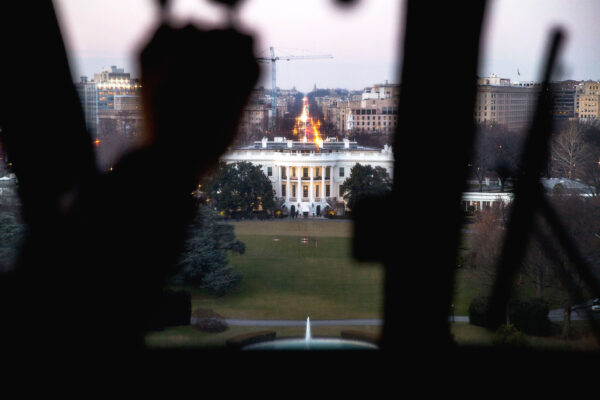
Donald Trump is literally a day away from becoming president of the United States, but he doesn’t have much of an administration yet to bring with him to Washington.
The Washington Post reports that the Republican has found just 28 people for a total of 690 positions requiring Senate confirmation.
Among the empty slots are almost all ambassadorships as well as the assistant, deputy and undersecretaries who execute policy and run departments day to day.
On top of that are hundreds of executive branch positions that do not require Senate approval, including the staff at the National Security Council.
Michael Crowley reports for Politico that the dearth of national-security appointments has foreign diplomats wondering if the Trump Administration will be ready for a crisis from day one.
According to The New York Times, the outgoing National Security Council isn’t even sure the thousands of pages of memos they have prepared for their successors are being read by anyone.
Vengeful
Partly this is Trump’s vengefulness working against him. He has refused to hire anybody who spoke out against him during the Republican primaries last year. Many rightwingers, especially in foreign-policy circles, did, appalled by Trump’s ignorance, his disparagement of American allies and admiration for Vladimir Putin.
Trump has also vowed to “drain the swamp” and avoid hiring from the usual DC lobbying firms and think tanks. That limits his options further still.
Even if he changed his mind, few Republican professionals may jump at the chance to work for Trump.
Eliot A. Cohen, a leading conservative strategist who has urged fellow Republicans to stay away from the incoming administration, warns in The American Interest that those who do join Trump will “spend the rest of their careers making excuses for things that once upon a time they understood were inexcusable.”
Trump’s subordinates must either know or will discover that the corruption of power works “not by making you do or say outrageous things (at first), but rather by inducing you to persistently shade the truth,” writes Cohen.
Just look at Mike Pence, Trump’s vice president, and Reince Priebus, his chief of staff. Both men have been reduced to making excuses for Trump’s behavior on an almost daily basis.
They will tell themselves that they have gone to work for the man because they think they can affect him; they will learn — or more likely, their friends and associates on the outside will observe — that actually, he is affecting them.
Perhaps seeing this happen to Pence and Priebus has taught other, less prominent Republicans as much?
Clueless
Trump’s cluelessness about how government actually works also plays a role in this.
As Jonathan Bernstein puts it at Bloomberg View, “he just has no idea what he’s doing and hasn’t surrounded himself with people well-equipped to translate his impulses and his campaign commitments into a full-fledged government.”
This isn’t a surprise, as Bernstein points out.
Recall that the Trump Organization has never had a large bureaucracy and that his campaign didn’t staff up the way campaigns normally do, so he doesn’t really have any relevant management experience.
I myself argued here during the primaries that Trump’s shambolic campaign operation, his many business failures and his expressed disdain for expertise suggested he would be awful at governing.
“Trump thinks he’s the smartest person in the room, hires only yes men, mocks and fires those who speak against him and seems incapable of delegating,” I wrote.
Little wonder he has almost no talent to draw on; no self-respecting policy expert or political operative would work for a man like that.
Turns out I wasn’t too far off.
Bureaucrats in charge
The consequence of all this will most likely be that the bureaucrats take over.
“It’s not news to anyone that bureaucrats are skilled in resisting the preferences of presidents,” writes Bernstein.
But an entrenched bureaucracy against a secretary (and in most cases, a secretary with little government experience or little policy expertise or both) and a bunch of empty desks? That’s no contest.
It’s probably for the best, given how ill-advised many of Trump’s policies — higher tariffs, lower taxes for the rich, repealing Obamacare without a plan to replace it — are.
But bureaucratic intransigence to the wishes of an elected president is also unlikely to help restore Americans’ faith in government, which has almost never been lower.
